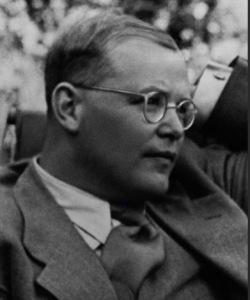Nerys writes: Today’s Gospel passage, Matthew 16.13-20, is a conversation between Jesus and his disciples which contains two questions and three answers.
Jesus takes his disciples a long way to the north, to Caesarea Philippi, a town named after the Roman Emperor Caesar and Philip, son of Herod, a Roman puppet king. It is in this place that Jesus invites them to name him. The first question he poses is easy for them to answer. Other people have placed Jesus among the prophets who over the centuries had spoken out against foreign rule and prepared the people of Israel for the coming of God’s promised one. The second question is more challenging but Simon Peter responds. Whether he blurts out what he personally thinks or speaks on behalf of the others, his answer would have been mind-blowing to anyone listening in. To recognise that Jesus is that promised one, the Christ, is to proclaim a new world order. Jesus commends Simon for this insight which has been given to him directly from God.
This isn’t the end of the conversation. Simon doesn’t ask his own question out loud but Jesus knows what is in his heart and in the hearts of his companions: ‘But what about me? If you are the Christ, the Son of the Living God, then who am I in relation to others and in relation you?’
The German pastor Dietrich Bonhoeffer wrote a reflection on this very question in a Nazi prison just weeks before he was executed for his opposition to the regime.

Who am I? They often tell me,
I come out of my cell
Calmly, cheerfully, resolutely,
Like a lord from his palace.
Who am I? They often tell me,
I used to speak to my warders
Freely and friendly and clearly,
As though it were mine to command.
Who am I? They also tell me,
I carried the days of misfortune
Equably, smilingly, proudly,
like one who is used to winning.
Am I really then what others say of me?
Or am I only what I know of myself?
Restless, melancholic, and ill, like a caged bird,
Struggling for breath, as if hands clasped my throat,
Hungry for colours, for flowers, for the songs of birds,
Thirsty for friendly words and human kindness,
Shaking with anger at fate and at the smallest sickness,
Trembling for friends at an infinite distance,
Tired and empty at praying, at thinking, at doing,
Drained and ready to say goodbye to it all.
Who am I? This or the other?
Am I one person today and another tomorrow?
Am I both at once? In front of others, a hypocrite,
And to myself a contemptible, fretting weakling?
Or is something still in me like a battered army,
running in disorder from a victory already achieved?
Who am I? These lonely questions mock me.
Whoever I am, You know me, I am yours, O God.
It is said that in prison, Bonhoeffer inspired all those who came in contact with him by his courage, his selflessness and his goodness, He even gained the respect of his guards, some of whom would apologise to him for having to lock the door of his cell. His calmness and self-control meant that he was able to give practical as well as pastoral care to his fellow-prisoners, saving some of them from certain death and bringing the comfort of his faith to many. This poem reveals, however, that, hidden inside, known only to himself, was a different person, weak and hurting, close to despair. He is tormented by the contradiction between the person others would say he was and the person he knows himself to be. He is unable to answer the riddle he has become to himself. He addresses his piercingly honest questions to God.
Jesus answers Simon Peter’s unspoken question by playing on his new double name. He is Simon son of Jonah, the most human of the disciples, struggling – and often failing – to understand Jesus and to follow in his way. He is also Peter, called to become the rock on which the new, world-changing community would be built.
Simon Peter is blessed, not through any virtue or wisdom of his own but because of his love of Jesus and his willingness to follow him. In the last line of the poem, Bonhoeffer’s tortured questions are answered in three simple words: ‘ I am yours’.
Are we, perhaps, being reminded today that blessedness is not about being perfect and free from contradictions, but about being willing to hand over who we are to God so that we can become the person God wants us to be?
You know me, Lord, and you love me just as I am. Help me to trust you enough so that I can freely offer myself to your service day by day. Amen.






